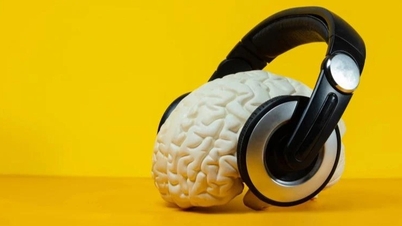In fact, these children have one thing in common: they all have good memory, sharp thinking and the ability to concentrate.
Memory plays a very important role in a child's learning, what does it depend on, why is there a big gap in the level of memory in children? Regarding this, Dr. Yuji Iketani, a neuroscientist at the University of Tokyo (Japan), has been researching the hippocampus of the brain for many years.
Yuji Iketani's research shows that, as long as every child masters the principles of brain science, they can enhance their memory in a short period of time.
The hippocampus is closely linked to human learning and memory, especially in forming and storing new memories. It also plays an important role in the conversion of memories from short-term to long-term memory.
If children have a good grasp of the principles of brain science, they will easily transfer what they need to remember into long-term memory when they learn. Children who have excellent academic performance from an early age are closely related to this.
So how to train children's memory?
Make learning a fun experience
According to India Today, parents can encourage their children to be interested in learning by going to the library and reading books on different topics. Visiting science museums, history museums, art galleries can also be helpful for children's memory. Imagining anything will help children remember tasks faster.

Imagining anything will help children remember tasks faster. Illustration photo
Children who sleep a lot have better memory.
Children should sleep deeply for about 8-10 hours a day. Sleeping a lot helps children consolidate and enhance their memory. Adults need to establish a regular sleeping habit for children, sleeping on time, and getting enough sleep to wake up healthy the next day.
Naps are also important, especially for preschoolers. A study published in the journal Proceedings of the National Academy of Sciences (USA) found that children's ability to recall cartoon images seen in the morning improved by 10% after napping.
Practice visualization skills for children
Encourage your child to create a mental picture of what they have just read or heard. For example, let’s say you have asked your child to set a table for five people. Ask your child to imagine what the table looks like, then draw it. As your child gets better at visualizing, they can describe the image instead of drawing it.
Do exercise
This is something that should be included in everyone’s daily routine. The earlier children develop a habit of daily exercise, the better it is for them. Physical activity helps the brain to be active and enhances its function effectively.

Physical activity helps the brain work more quickly and enhances its function effectively. Illustration photo
Eating eggs helps improve memory
The brain is made up of fats such as omega-3 fatty acids and DHA. These substances are found in egg yolks and salmon. These foods help build brain and nerve cells, enhancing a person's learning and memory abilities. Eggs are also high in protein, rich in vitamins D, B6 and B12. Eggs are easy to cook and can be prepared in a variety of ways.
Improve concentration
Many parents say that their children cannot sit still in class, cannot concentrate when studying, and like to wander around, which are all signs of lack of concentration in children. To improve their children's academic performance, parents need to train their children to concentrate, and this process requires perseverance over a long period of time.
To train children's concentration, parents can encourage children to read books, use pictures and colors, play concentration games, not put pressure on children, create a favorable learning environment, and teach children how to manage time and emotions.

To improve their children's academic performance, parents need to train their children to concentrate. Illustration photo
Increasing intake of nuts improves memory retention
Nuts in your child's diet provide energy and help boost brain power. Walnuts resemble the shape of the brain and help boost memory by providing omega-3 fatty acids.
According to E Times, consuming almonds for 28 days can significantly improve memory retention. Other healthy nuts include peanuts, chestnuts, and cashews, which are also rich in nutrients and healthy fats that are good for the brain. Other nuts such as pumpkin seeds, chia seeds, sesame seeds, sunflower seeds, and flax seeds have anti-inflammatory properties that help improve children's cognitive development.
Keep your child in a good mood
Anxiety, stress, and fatigue will make children's memory worse. Bad moods will make everything upside down, as a result, the information children have memorized will gradually be encoded and may be forgotten.

Reading aloud is also a way to enhance memory and help the brain work. Illustration photo
Encourage children to read actively to build long-term memory
Parents can guide children to always take notes and underline, highlight useful words and ideas when reading books. This can help children retain information for a long time. Reading aloud is also a way to enhance memory and help the brain work. Reading and writing with a plan helps build long-term memory for children.
Let children be "teachers"
According to Very Well Family, conveying what you know will help children remember more deeply and thoroughly. Parents can teach children about things and phenomena around them and then pretend to forget so that children can instruct them again. Continuously asking questions will stimulate children to convey more information, as well as promote their ability to imagine images.
Source


![[Photo] Close-up of Ba Ha River Hydropower Plant operating to regulate water to downstream](/_next/image?url=https%3A%2F%2Fvphoto.vietnam.vn%2Fthumb%2F1200x675%2Fvietnam%2Fresource%2FIMAGE%2F2025%2F11%2F25%2F1764059721084_image-6486-jpg.webp&w=3840&q=75)



























































![[Answer] Should I install an elevator for an old renovated house?](https://vphoto.vietnam.vn/thumb/402x226/vietnam/resource/IMAGE/2025/11/25/1764039191595_co-nen-lap-thang-may-cho-nha-cai-tao-cu-khong-04.jpeg)

















![[Photo] President Luong Cuong receives Governor of Kaluga province Vladislav Valerievich Shapsha](https://vphoto.vietnam.vn/thumb/402x226/vietnam/resource/IMAGE/2025/11/25/1764057337996_image.jpeg)
































Comment (0)